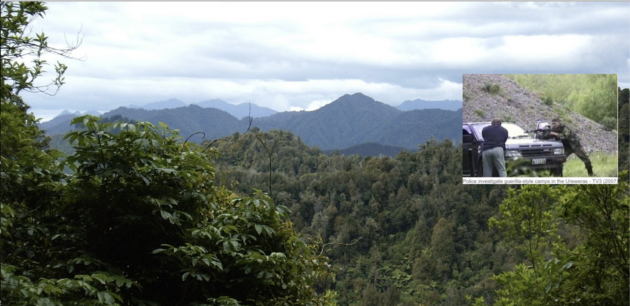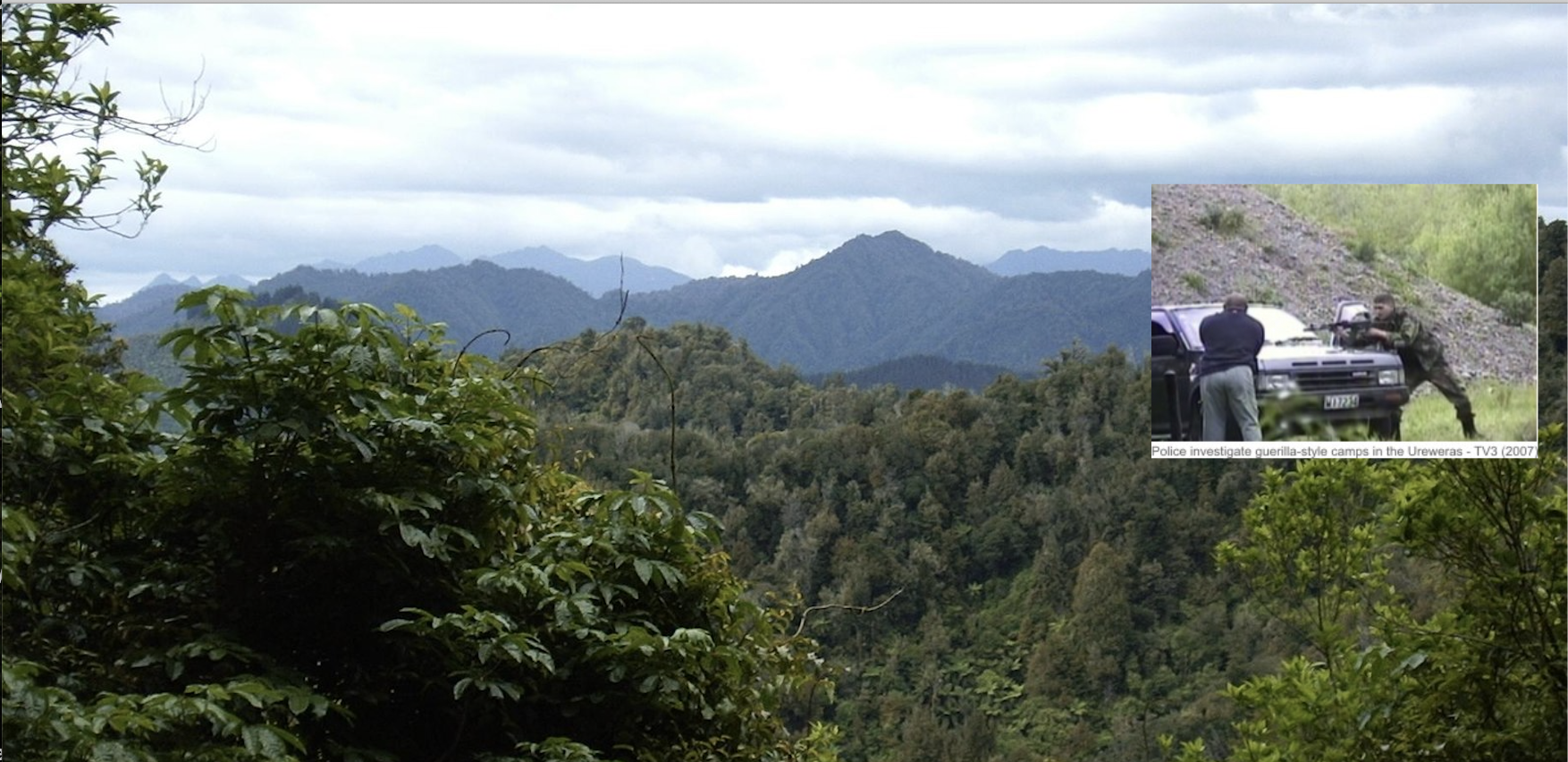THOUSANDS of words have been written already in response to the Royal Commission’s report on the Christchurch mosque attacks. Many of these have been devoted to the alleged failings of our national security community. Why, these critics ask, did the SIS and the Police pay such a lot of attention to the Muslim community, but so little to the individuals and groups promoting white supremacy? Why was there so little official interest in combatting domestic terrorism?
The answer to the question about the Muslim community, although obvious, has been studiously avoided by the powers-that-be. Between 2001 and 2019 tens-of-thousands of innocent human beings across the planet were murdered by Islamic terrorists. Many of the perpetrators of these terrorist acts came out of local Muslim communities which had previously given no hint they contained such people. Western intelligence agencies struggled to produce a coherent assessment of the level of threat posed to their societies by the influence of Islamic extremism. Unsurprisingly, surveillance was ramped up by several orders of magnitude. In this regard, New Zealand simply opted to follow the lead of its Five Eyes partners.
As the Commission’s report makes clear, complaints from the Muslim community about the increasingly aggressive harassment of its members failed to produce the protective response such victimisation clearly merited. Those on the receiving end of such Islamophobic behaviour were in no way responsible for the terrorist acts of their co-religionists.
Fear and anger, however, are not emotions conducive to fostering empathy and understanding, and, prior to the attacks of 15 March 2019, most of the fear and anger in relation to Islam was to be found among the people of the West. Understandably so, given that, outside of Africa and the Middle East, Western ‘infidels’ were the Islamic terrorists’ preferred target. Unspoken, perhaps, but almost certainly not unformulated in the minds of security service personnel, would have been the question: “What did you expect?”
Also present in the minds of the security services would have been a reflexive unwillingness to “blame” those harassing the Muslim community. When confronted with the death and destruction of the Twin Towers and the wanton cruelty of the Bataclan Theatre, all the professionalism in the world is, for a little time at least, unequal to the task of driving down the visceral human desire to be revenged upon the persons responsible – and those who think like them. It was an important part of our security professionals’ jobs to fight this response, but they would have been equally aware that the “average punter” was not obligated to ignore his feelings in quite the same way. If people “out there” were giving vent to their rage, well, that was understandable – wasn’t it?
It simply wasn’t within the imaginative range of our security chiefs to anticipate the deadly progression from fear and anger, to unlawful harassment, to the ideologically driven bloodbaths of Anders Breivik and Brenton Tarrant. This was New Zealand, for God’s sake! And, with the exception of tortured souls like Stan Graham and David Gray, Kiwis just don’t do such things. Sure, there are a handful of idiots ‘out there’ who liked to film themselves offering Hitler salutes to swastika flags. But you only had to watch these tragics fleeing from the wrath of the ‘anti-fascists’ who stalked their every public move to understand that they posed no real threat to anyone!
And, of course, they were right. The perpetrator of the Christchurch mosque attacks wasn’t a Kiwi. Tarrant was an Australian. What’s more, he had a substantial inheritance with which to fund his transformation from a sad and troubled loner into a stone-cold ideological killer. That money gave him the time and the resources to plan and execute his terrorist mission. Forget about the cops and their mishandling of his application for a firearms licence. Had they done everything right, is it really likely that Tarrant would simply have given up? He had the money to find the weapons and the ammunition he needed on the black market. One way or the other he would have built up his arsenal – and used it.
Tarrant was the security services’ worst nightmare: well-resourced, quiet, law-abiding, patient, and utterly impervious to reason or remorse. That’s why the Royal Commission had no option but to find that this ‘lone wolf’ terrorist was essentially unstoppable – except by pure chance. Tragically, Friday 15 March 2019 was not New Zealand’s lucky day.
Which still leaves the question: Why was there so little interest in domestic terrorism? There is an answer to this question – one which the Royal Commission, the New Zealand Intelligence Community and the Police should have advanced with as much force as they could muster. The fate of “Operation Eight”: the doomed 2007 attempt to deal to left-wing activists wandering around the Ureweras with firearms and Molotov cocktails.

Today such behaviour, especially if undertaken by ‘far-right extremists’, would have the country howling for their hides. Thirteen years ago, however, the alleged threat which these activists posed to New Zealand society was derided as farcical. New Zealanders didn’t do terrorism, we were told. Especially not these baby-faced leftists, against whom the full weight of the state was being brought to bear.
The PR campaign waged by the Left on behalf of the arrested ‘terrorists’ was near faultless – textbook stuff. By the time the trials ended virtually the entire news media had been persuaded to portray the Police as the bad guys: a ruthless sledgehammer wielded against a bunch of harmless nuts. By the time it was all over, the Police were apologising abjectly to just about anybody who asked – for doing their duty.
Is it really all that hard to understand why senior figures in the New Zealand Intelligence Community – everyone from Police Intelligence to the Department of Prime Minister and Cabinet – might have been just a little bit wary of taking pre-emptive action against ‘white supremacists’? They’d seen what happened when they attempted to place political activists under surveillance. They’d watched as Crown Law disavowed their actions vis-à-vis the Suppression of Terrorism Act. They’d endured the scorn of armchair experts who pronounced all-knowingly on the extreme unlikelihood of Kiwis ever embracing the tactics of terror. Their lawyers had felt the wrath of a judiciary determined to uphold the rights of citizens – up to, and seemingly including, levying war against the Crown.
Our ‘spooks’ had been turned into laughing stocks, our senior police officers humiliated, our culture declared incapable of perpetrating deliberate acts of political violence. Small wonder, then, that the will to take domestic (as opposed to Islamic) terrorism seriously was lacking. And how very galling for those charged with protecting the people of New Zealand from ideologically-driven homicidal maniacs, that they should once again find themselves assailed by the New Zealand Left. This time for failing to do what they were so roundly castigated for doing back in 2007.
The Iranians have a saying: “Luck is infatuated with the efficient.” Is it possible that New Zealand might have had more luck anticipating Tarrant’s crime if its national security community had not been weighed down with the notion that, because so many of their fellow citizens were convinced that domestic terrorism couldn’t happen here, it wasn’t worth trying to prevent it?

